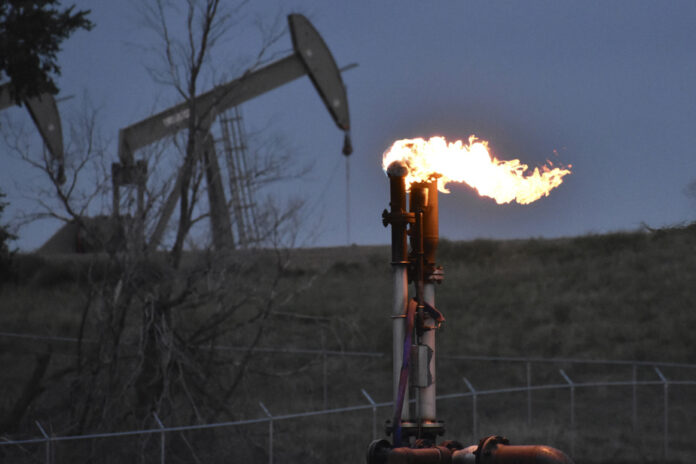(New York) Oil prices barely stabilized Thursday during a volatile session after the previous day’s drop in prices took them to their lowest level in five months.
The barrel price of American West Texas Intermediate (WTI) oil for delivery in January finally stagnated (-0.05%) at 69.34 dollars, maintained below the symbolic bar of 70 dollars.
The price of a barrel of Brent from the North Sea, for delivery in February, fell further by 0.33% to $74.05.
The day before, crude oil prices had fallen to their lowest level in 5 months, as “concerns about the Chinese economy and oversupply in the oil market weighed” on prices, explained James Harte , analyst at Tickmill.
Abundant supply is indeed “another factor currently worrying oil traders,” he insists, noting that stocks of petroleum products increased last week in the United States.
There is both “doubt about OPEC’s ability to make its production cuts and a deterioration in demand,” summarized Matt Smith of Kpler.
The analyst points out that gasoline demand in the United States is not as good as expected, which will soon have an impact on refinery activity.
Demand for gasoline is only up 1% year-on-year, according to the latest data from the US Energy Information Administration (EIA), Matt Smith further explains.
“The start of the year seems quite mediocre in the eyes of many in terms of demand and that is what worries the Saudis: seeing supply exceed demand,” the expert explained to AFP. “This is why they are extending production cuts,” he added, in order to maintain prices.
In Riyadh, Russian President Vladimir Putin and Saudi Crown Prince Mohammed bin Salman took advantage of a rare face-to-face meeting to stress the need for oil producers to meet their commitments to reduce oil emissions. offer, according to a joint press release published Thursday.
The two leaders “attempted to rally the OPEC troops today,” commented Phil Flynn of Price Futures Group.
They “urged all OPEC powers to join in the oil cuts. It’s not exactly a vote of confidence,” the analyst added.
The market remains skeptical of the promise from members of the Organization of the Petroleum Exporting Countries (OPEC) and its allies in the OPEC alliance of new combined cuts of 900,000 barrels per day, in net, from January until next March.















